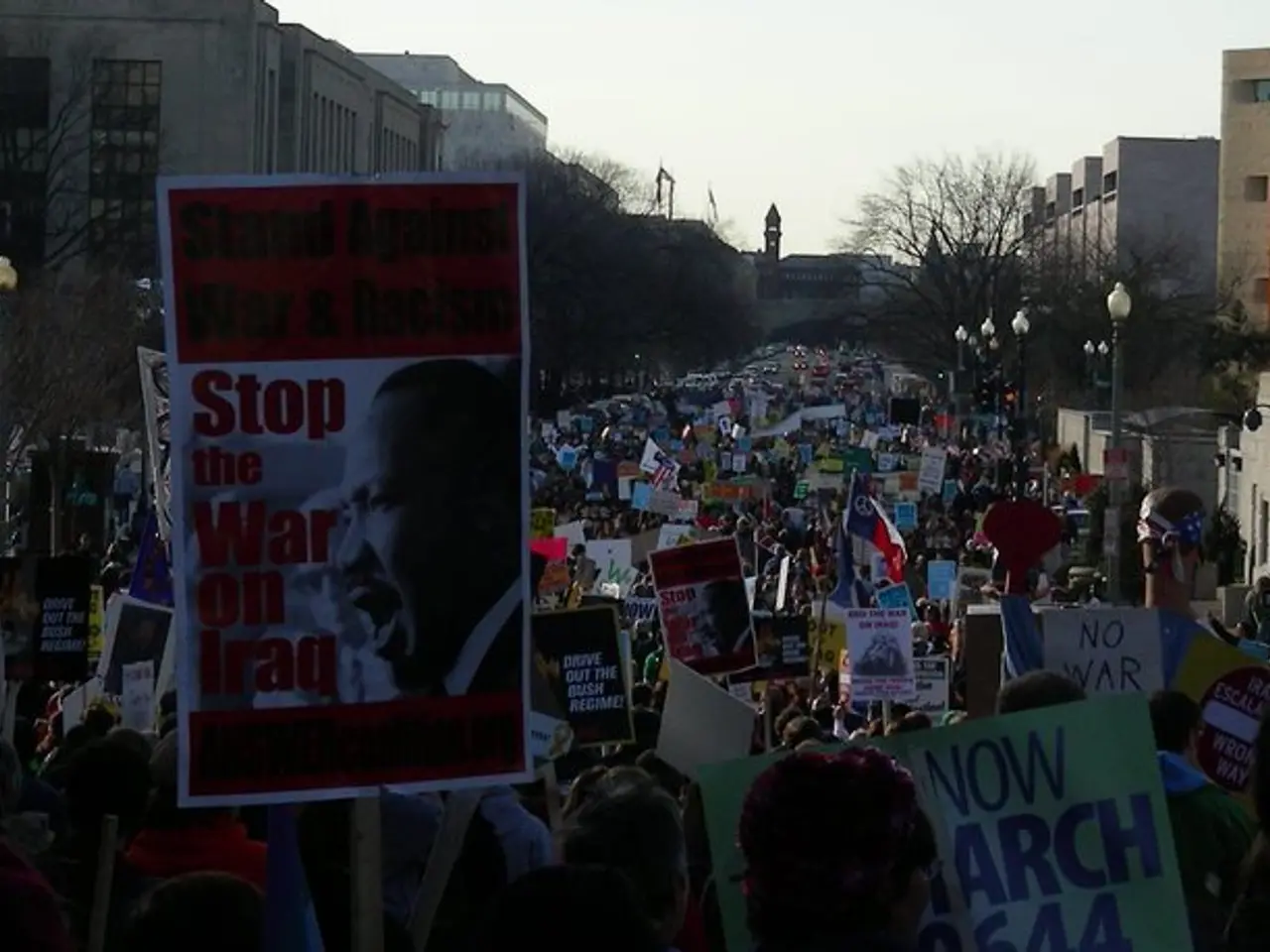Decreasing Prospects for Middle East Peace as Trump Strikes Nuclear Sites in Iran
In a shocking turn of events, the United States joined Israel in their battle against Iran, bombing three key nuclear sites in Fordow, Natanz, and Esfahan early Sunday morning Middle Eastern time. The consequences of this aggressive action are unclear, but one thing is certain—it's a solo decision made by a president who vowed during his campaign to avoid the disasters of past American wars in Iraq, Libya, and Afghanistan.
Without the backing of Congress, this powerful strike against Iran's nuclear fuel enrichment facilities is a risky move, fueling fears of another "forever war" in a distant land. Despite the aura of toughness or support that this move might generate, the American people are largely blindsided and are not thought to be behind this escalation.
The possible spread of war in the region is a genuine concern, as Iran ramps up its attacks on Israel, perhaps seeking retaliation with its limited ability to target American bases in the Middle East and potentially disrupting oil shipments through the Strait of Hormuz. For the good or the bad, Israel and now the U.S. have taken a stand against Iran's nuclear program, a move that, while morally questionable, has been long-awaited by Israel and the U.S. due to Iran's belligerent rhetoric and nuclear ambitions.
In this age of ballistic missiles, drones, and nudes in silos, respect for territorial integrity has all but vanished, with Russia's invasion of Ukraine in 2022 and Israel's retaliation against Hamas militants in Gaza in 2023 being prime examples. It's worth noting that there's no real justification for any of the ongoing wars, and a war-weary world in 2025 may just see more of the same.
The U.S. President, who once position himself as a peace-maker and even campaigned for the Nobel Peace Prize, has now ordered stealth bombers to fly thousands of miles to join Israel's war with Iran. This decision has effectively shattered any hope for dialogue and diplomacy and all but ensured more conflict in the volatile region. A power-hungry executive, seeking to protect Israel, has instead brought the world closer to an all-out war.
Politics and general news remain abuzz as the U.S. President's decision to join Israel in their conflict with Iran escalates war-and-conflicts in the Middle East, confronting the risk of another "forever war." Without public backing from Congress, this action fuels concerns about the potential spread of war and disruption of critical oil shipments.





